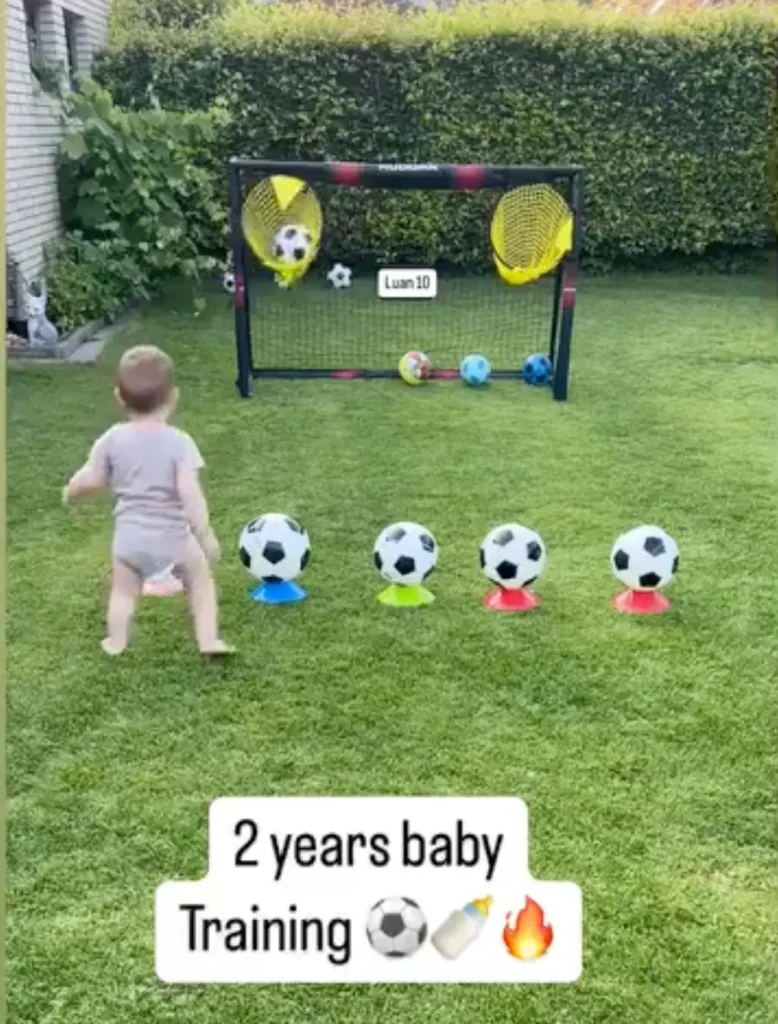
What is the best age to start playing soccer? Well, I’ve coached kids as young as eighteen months, and the short answer is it depends. Informal, simple activities that introduce a soccer ball to their little feet are a great way to start. This can begin soon after they learn to walk.
Here are seven factors to consider when deciding the best age to start playing soccer:
7) How young is too young?
The age at which motor skills and cognitive abilities develop has never been one-size-fits-all. I have coached children from the time they first started walking, and the rule of thumb is to wait until the child has developed sufficient foot-eye coordination.
According to the American Academy of Pediatrics, by six years old, children have the basic motor skills for organized sports. They are also at an age of development where they can concentrate for longer periods and retain new information more easily.
6) What is your child’s attention span?
Before age 6, most children don’t have the balance, attention span, or the ability to track moving objects. At this age, the key is to focus on fun as it will help them stay interested and want to keep playing.
5) When to start learning the fundamentals
Can your child maintain focus on a task for at least 20 to 30 minutes? Between 6-7 years of age is the time when they can concentrate for longer periods and retain new information more easily. They can also start doing basic soccer drills to improve speed and stamina.
4) When to start playing competitively
Not before age eight should a child start playing competitive soccer. Why? A child may not be able to handle the pressure of winning and losing before this age. Emotions run high.
At this age, the measurement of their performance is compared to other players. Being cut from a team can be emotionally traumatic. Without proper mentoring and guidance, this can have a lasting detrimental impact, leading them to wanting to quit.
3) Releasing pent-up energy helps children focus
When young players get to release their pent-up energy from sitting in school all day through fun running games, they are better able to focus on more complicated tasks. A little tired, but not too tired.
2) A positive experience is what matters most
Whether it’s dance class, elementary school band practice, or soccer, parents need to immerse their children early if they want them to succeed. Keep in mind that children are not exposed early to master enrichment activities but to build positive and meaningful connections. The goal is enjoyment.
1) Elite performance is no accident
By ages 10-12, children are expected to possess the motor skills and cognitive ability to grasp more complex aspects of the game. The goal of childhood lessons is to provide a seamless transition from gaining experience to improving performance ability.
Keep in mind that these are only guidelines; exceptions will undoubtedly occur based on the child and/or coach.
Like riding a bike or learning a language, these skills can be learned later in life, but they will never be “natural” in the way that is so important for elite performance.

Coach Terry
Coach Terry's player experience includes multiple championship titles: Two Maryland State High school championsips, Youth U16 North American Championship, U19 McGuire Cup, ACC Tournament victory, and a Final Four appearance with the UNC Tarheels. All-City Soccer NYC has developed a winning formula for unlocking elite player performance in young athletes.
